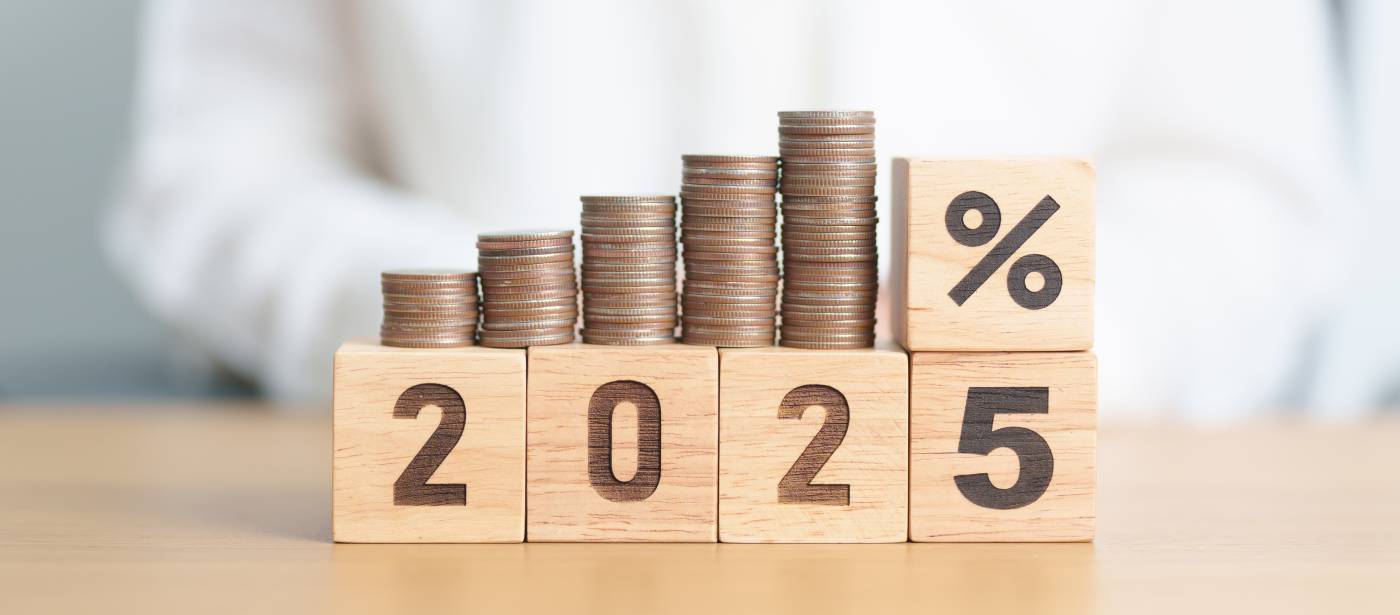

This article is for general guidance only and is not financial or professional advice. Any links are for your own information, and do not constitute any form of recommendation by Saga. You should not solely rely on this information to make any decisions, and consider seeking independent professional advice. All figures and information in this article are correct at the time of publishing, but laws, entitlements, tax treatments and allowances may change in the future.
As the heat of summer continues, you may be spending more time outside, getting together with family, and maybe looking forward to a holiday or some summer fun.
It can be a great time to do a budget check-up to ensure you’re able to enjoy the warmer days to their fullest. If you can manage these six tasks, you'll find your accounts are more on track and your filing system is running smoothly.
What’s on this page?
The Bank of England base interest rate has fallen four times in the past year, from 5.25% in July 2024 to 4.25% today. Without a crystal ball it’s impossible to accurately predict what’ll happen to interest rates over the next few months.
However, the markets are very much readying themselves for a base rate reduction by the Bank of England in the coming months. Ruth Gregory, deputy chief UK economist at Capital Economics, expects interest rates could fall to 3.75% by the end of 2025.
While you’re investigating the interest you’re receiving, it’s also worth looking at your savings balances and considering what you’ve got available in case an emergency crops up.
Experts typically recommend having three to six months of living costs in easy access savings while you’re still working.
If you’re retired, the recommendation is usually for one to three years of essential spending. That’s because you may have less money coming in so it’s potentially harder to top up your pot.
Emilie Bellet, founder of @vestpod and The Wallet podcast, says if your emergency pot is a bit low, think about ways to boost it. “Even small, regular deposits can make a big difference over time.”
One option is to put your income and expenditure under the microscope and work out how much you could feasibly afford to save each month.
Then set up a standing order paying that amount into your savings account every four weeks or so. That way the money is paid regularly, without you having to think about it. It doesn’t matter if you aren’t saving much, a little will always be better than nothing at all.
If you pay your tax by self-assessment – perhaps because you’re self-employed or have multiple income streams – you might have a July tax deadline.
Some taxpayers will need to make a ‘payment on account’, which is an advance payment on the coming year’s bill. This is made up of two payments: the first half must be paid by 31 January, the second by 31 July.
These are based on an estimation of the next year’s tax bill. If you expect to pay less tax for this period – for example if your income has fallen – tell HMRC and your payment on account can be reduced. There’s no need to panic – you should have been informed if you needed to make payments on account.
But if you’re not sure, log on to your HMRC account to check. It will tell you whether a payment is due this month. You can also contact HMRC online, on the phone or by post.
All the details are listed on HMRC’s site. If you do have a bill to pay, make sure you have the funds available and ready to pay before 31 July, otherwise you could be hit with a penalty charge.
You might be sitting in the sunshine, pleased that the energy price cap has just fallen by 7%, your bills have come down and that your meter whirrs more slowly at this time of year. But there’s no ignoring that the wholesale cost of energy remains higher than they were a few years ago.
Analyst firm Cornwall Insight predicts that the average annual household dual fuel bill will remain at around £1,720 for the rest of the year. It was £1,568 a year ago. You may be considering switching to a fixed deal, so you’ll know what you’ll be paying for the next 1-2 years.
Keep an eye out for new fixed-term tariffs coming through and get ready to compare it with what your existing supplier offers. It’s not easy to predict when the right time is to fix your monthly energy spend – now might not be the right time, and it can quickly become a ‘crystal ball’ exercise – so it’s better to have an idea of your ideal budget and see if anything on offer fits what you can afford.
Energy price comparison sites make it easy to shop around. They gather deals from different providers and help you compare prices with your current tariff, making it easier to see if you can move to something that better fits your budget.
.jpg?sc=max&mw=800&h=450&la=en&h=731&w=1300&hash=3550A2DFE691650D71D2A6B150DEFDD6)
It’s easy to get carried away with spending in the summer. There are more opportunities to socialise, eat out, go to events and travel. And the costs can mount up.
Ban Mahsoub, a director at Tesco Insurance and Money Services, suggests you keep a check on your weekly or monthly budget for overspends that you can claw back, and plan adjustments down the line.
She says: “Consider whether you’re using all your subscriptions, such as TV streaming services, and if you can cut back on anything non-essential. Even a temporary cutback can help save some money over the summer months.”
Saga research has found that grandparents spent an average of 16 days providing childcare in the summer holidays.
If that applies to you, there are ways to be thrifty while keeping them entertained.
There are lots of budget-friendly activities, that will still give you a fun and enriching time together. Options could include cheap cafés, your local playground (or try one a bit further afield), browsing in charity shops, baking or going on ‘smartphone camera adventures’.
If you do want to push the boat out for a special treat, you can save a fortune by researching activities and deals in advance. For instance:
Find more ideas in our piece on smart hacks for cheaper days out to cut the costs of memorable moments with grandchildren.
Summer in the UK isn’t always filled with baking, balmy days. On rainier ones, when you’re stuck inside, try weeding your bulging filing system rather than the garden.
Organising files and ditching out-of-date paperwork is always easier when things are quiet, rather than as part of a panic search for vital documents.
It could also flag tasks for other days too, such as checking you’re still on the best broadband tariff or reminding you when to shop around before your insurance renewal date.
Put these in the diary and your future bank balance will thank you. Apart from the identity and legal documents that need keeping indefinitely, a good rule of thumb for general paperwork (such as old utility bills, insurance documents and receipts), is to keep things for two to three years – or six years if you’re self-employed.
But there’s no going back once it’s shredded. So it’s important to know what’s worth keeping and what you can get rid of, to keep the clutter in your life to a minimum.
It might not be top of your to-do list, but you need to make sure your loved ones know where all your important documents are. Before you go on holiday is as good a time as any.
Jenny Walsh, partner in the private client department at Osbournes Law, says: “While none of us want to imagine the worst-case scenario, should anything happen to you whilst away, those people will need to be able to access those documents to deal with your finances or health decisions. They will be glad that you made life a little easier for them at a difficult time.”
Be systematic and think about all the documents or information someone could need to deal with your affairs.
Repeating this task over a few days (or weeks) allows you to remember some key information that might not be apparent on the first look.

How to improve your financial position in 2025, from paying down debt to maxing your savings.




Find out how interest rates will affect your finances, from mortgages and borrowing to saving.


We're here to help you make the most with your money. With a rage of financial services designed with over 50s in mind.